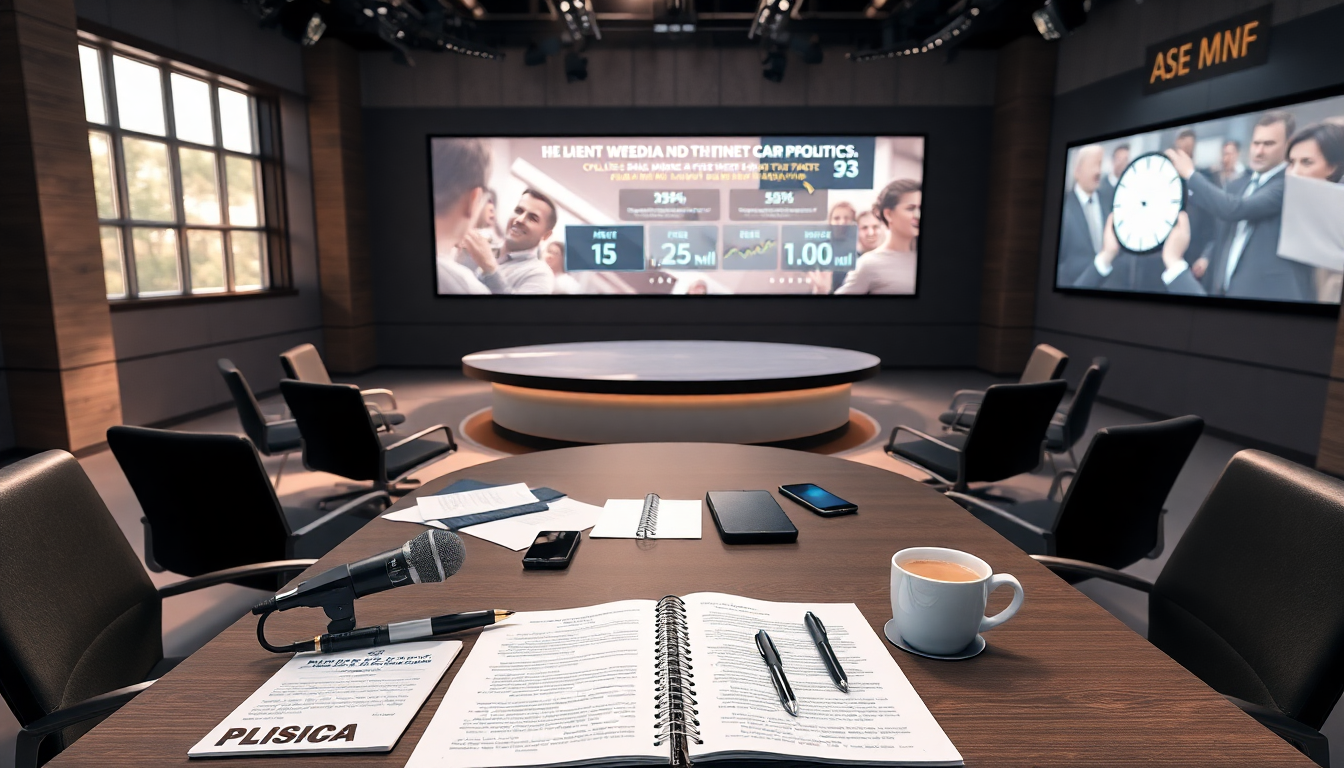Table of Contents
The relationship between media outlets and political pressures has become a tangled web in recent years, reflecting the broader tensions in our society. Have you ever noticed how shows like ‘The View’ manage to walk a tightrope between free expression and political correctness? This article explores the current state of media, diving into how political scrutiny shapes programming decisions and which voices get heard—or silenced—in this heated climate.
The Changing Landscape of Television Commentary
Once upon a time, television shows thrived on bold political commentary, but now they’re facing intense scrutiny from both viewers and network executives. Take ‘The View’, for instance. This show has long been a platform for left-leaning discussions, attracting both passionate fans and fierce critics.
Recent reports indicate that ABC, the network behind ‘The View’, is reconsidering the show’s editorial direction. What does this mean for the future of political content on television? It hints at a shift where entertainment media is increasingly held accountable for its political stance, often leading to a chilling effect on creative expression.
Critics, including outspoken figures like Rosie O’Donnell, have raised concerns that these changes aim to suppress dissenting opinions. O’Donnell’s comments about ABC’s review of ‘The View’ suggest that this isn’t merely a question of bias but rather an effort to align with a dominant political narrative.
When does the line blur between balancing viewpoints and enforcing silence? This dilemma raises important questions about the role of media in a democratic society.
The backlash against shows perceived as too liberal isn’t a new phenomenon. Historically, media outlets often adjust their content to reflect shifting political climates, responding to changes in public sentiment and the risks of alienating certain viewer demographics.
This adaptability is crucial for the sustainability of media organizations, which must juggle viewer expectations and corporate interests.
The Implications for Public Discourse
The influence of political pressures on media extends far beyond individual shows; it shapes public discourse and the variety of opinions available to audiences.
When media outlets prioritize specific narratives, they risk creating a homogenized view of political reality that doesn’t accurately reflect the rich tapestry of society. Are we consuming entertainment or merely absorbing a filtered version of political dialogue that shapes our perceptions and beliefs?
As Rosie O’Donnell pointed out, the implications of this trend are significant. The push for a ‘balanced’ perspective often sidelines voices that challenge the prevailing narrative. This raises critical questions about the media’s role as both a watchdog and a platform for diverse voices. Is it concerning that truth can sometimes be perceived as a threat? This illustrates a broader struggle for control over the public narrative.
Moreover, the critique of shows like ‘The View’ signals a growing intolerance for dissenting opinions in mainstream media. This intolerance affects not only the content produced but also the careers of those who dare to speak out against the status quo. Journalists and commentators now find themselves navigating an increasingly fraught political landscape, a reality that could stifle innovation and discourage bold storytelling.
Looking Ahead: The Future of Media in a Polarized Environment
As we look to the future, the relationship between media and politics is bound to evolve, influenced by changing viewer preferences and societal attitudes. Ongoing discussions about political commentary in entertainment will shape not just the future of shows like ‘The View’, but the entire media landscape. For media organizations, the challenge lies in maintaining their integrity while responding to marketplace pressures.
Ultimately, the future of media depends on its ability to adapt while prioritizing diverse viewpoints. Fostering a rich tapestry of voices and encouraging open dialogue will be essential for media to fulfill its role as a pillar of democracy. As audiences become more discerning, the demand for authentic, unfiltered content will only intensify, presenting both a challenge and an opportunity for media creators. Are we ready to embrace this change?





